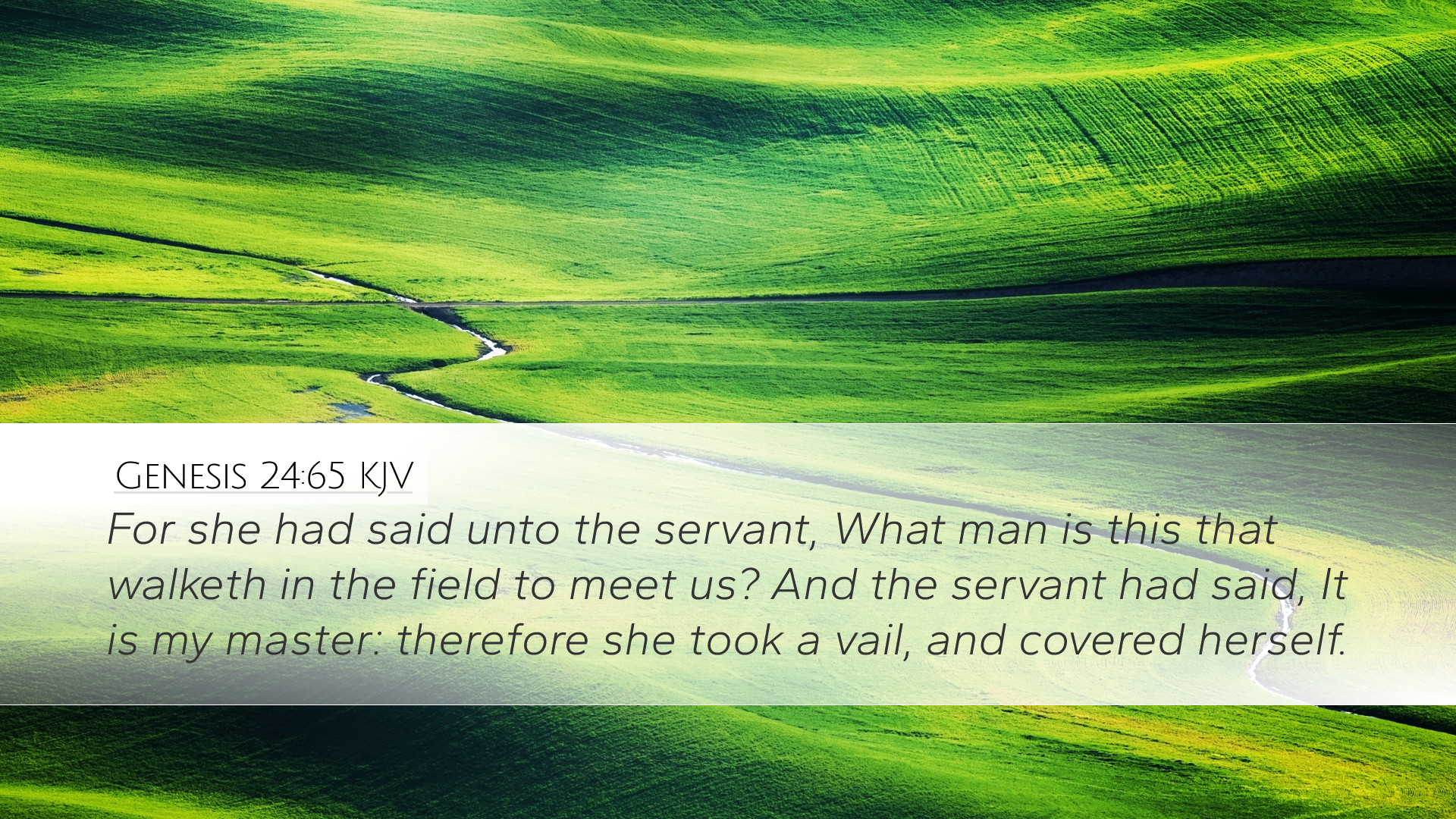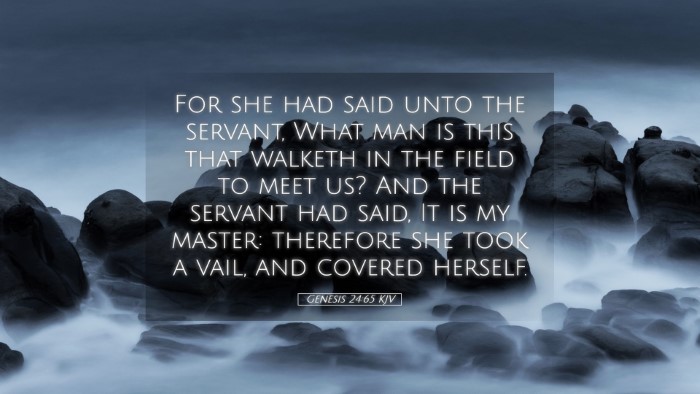Commentary on Genesis 24:65
Verse Context: Genesis 24:65 states, "For she had said unto the servant, What man is this that walketh in the field to meet us? And the servant had said, It is my master: therefore she took a vail and covered herself."
Introduction
This verse occurs within the broader narrative of Abraham's servant seeking a bride for Isaac, which symbolizes God's covenant promises and the unfolding of His plan through faithful obedience. The verse captures a moment of anticipation and modesty, highlighting significant cultural practices and spiritual themes.
Commentary Insights
Historical and Cultural Context
Albert Barnes points out the cultural significance of veiling women in ancient times. The act of Rebecca covering herself signals respect and modesty—virtues highly regarded in her society. It symbolizes her transition from a life of relative independence to one of marital commitment, with its attendant roles and expectations.
Matthew Henry emphasizes that Rebecca’s modesty is indicative of her character, a common thread for women of virtue in Scripture. Her action serves to uphold her family's honor and demonstrates her appropriate response to the servant's announcement about her future with Isaac.
Spiritual Symbolism
Adam Clarke explores the deeper spiritual implications of this encounter. The meeting between Rebecca and the servant can be seen as a divine orchestration in fulfilling God's promises. Rebecca's veiling can symbolize the mystery of faith and the hidden nature of God's plans—met with faith and obedience.
This moment foreshadows the greater narrative of salvation in Christianity, where God reveals His will gradually, and believers respond with faith. Rebecca's actions can be viewed as an allegory for the Church's anticipatory preparation to meet Christ.
The Role of the Servant
The servant plays a crucial role in this narrative, akin to the Holy Spirit in contemporary theology—a guide facilitating connection and covenant. The servant praises God for success in finding Rebecca, reflecting the importance of prayer and divine guidance in our endeavors.
Barnes highlights the servant's faith and diligence, noting that his joy upon finding Rebecca demonstrates the fulfillment of his mission and God's promises.
Rebecca's Response
Rebecca’s immediate reaction reflects her character: bold yet respectful.
Henry asserts that her inquiry about the man walking toward them indicates curiosity and cautiousness, embodying the balance of discernment and eagerness to embrace God's plan.
Her choice to cover her face illustrates both humility and reverence, which are essential qualities for individuals stepping into roles ordained by God.
Theological Reflections
This text serves as a microcosm of covenantal faithfulness. God's faithfulness to Abraham is illustrated in the careful selection of Isaac’s bride.
It invites pastors and theologians to meditate on the themes of waiting and divine provision.
This is a reminder that God is intricately involved in every aspect of our lives, guiding us toward His will.
Application for Today
The principles gleaned from Genesis 24:65 remain relevant for believers today.
- Modesty and Identity: Reflecting on how we present ourselves and our values in both personal and community contexts.
- Submission to Divine Will: Encouraging faith in God's timing, drawing parallels between Rebecca's situation and the modern believer's journey.
- Active Participation in God's Plan: As the servant actively sought Rebecca, believers are called to be active participants in God's redemptive work in the world.
Conclusion
Genesis 24:65 serves as a pivotal moment in the unfolding narrative of God's covenantal promises. Through the insights of public domain commentators, we glean rich theological and practical lessons that continue to resonate with us today.
As we reflect on this text, may we embrace the values of faith, obedience, and humility exemplified by Rebecca and her servant, fostering a deeper understanding of our roles within God's grand narrative.


